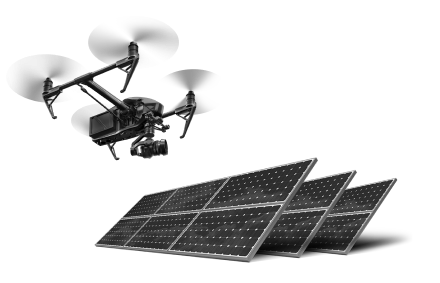Check out our latest blog article: From component to enterprise – modular robotics done right.
IoT in Retail and Ecommerce After the Pandemic

Customers used to have to go out to a store and physically check the product they wanted to buy, but no longer. Now they scroll through the endless variety of products available via their smartphones. Retail got smart.
The Internet of Things (IoT) has a special role here. IoT in retail and ecommerce is becoming mainstream due to the endless improvements it offers to the industry. The technology helps investigate customer behavior, create new business models, and optimize productivity.
The market size of IoT in the retail market is expected to be worth $94 billion by 2025, with a compound annual growth rate (CAGR) of 21.5%. It’s clear that connected devices will continue changing retail for the better.
Why Should Retailers Invest in IoT?
The retail market is expected to generate more than $78 billion in annual transaction revenue by 2022. It’s crucial to be aware of cutting-edge tech trends. So let’s explore some of them so you can find new opportunities.
What IoT benefits can help retailers grow quickly? Options include:
- Faster and more efficient logistics and supply chain operations
- Enhanced customer experience and customer engagement
- Improved traceability and visibility in the inventory and delivery system
- Boosted manufacturer and customer relationships
- Exciting in-store customer experiences through IoT-based ecommerce websites and applications
- Remote assessment of products to predict their maintenance and analyze performance
- Greater warehouse robotization and automated shipping processes
- Better marketing and promotion opportunities
- Efficient use of in-store staff
In other words, for business, deploying IoT solutions in retail and ecommerce means new shoppers, improved communications between consumers and retailers, and revenue.
IoT Applications for Retail and Ecommerce: Practical Use Cases
Combined with cloud technologies and AI, IoT devices can transform any retail or ecommerce business. Here are some of the most promising examples of how IoT is being used in the industry.
1. Predictive Equipment Maintenance
Predictive maintenance allows for managing energy, predicting equipment failure, and detecting other issues. Take, for instance, any grocery store tooled up with complex equipment and sensors generating data. With this data, store engineers can predict maintenance issues that affect power consumption. They can also monitor temperature fluctuations to ensure food safety.
Benefits
Predictive maintenance helps retailers:
- Ensure appropriate storage
- Avoid costly repairs down the line
- Eliminate downtime
2. Smart Transportation and Vehicles
Retail companies can equip their freight vehicles with IoT-connected sensors, GPS trackers, or Radio Frequency Identification (RFID) tags. This means that goods on their way from suppliers to warehouses or from warehouses to end-users become visible in real time. IoT helps track item location and monitor their state and environmental conditions. With IoT, managers can understand how close a pallet of merchandise is to a given store.
Benefits
With smart transportation, companies can:
- Manage logistics effectively
- Keep supply chain management seamless
- Eliminate issues with missing shipments while optimizing vehicle routes
- Make self-driving delivery vehicles a reality

3. Replenishment and Inventory Tracking
To have control over the items going out of and coming into their warehouses and to know what is in and out of stock, ecommerce retailers need IoT tools. Using sensors and RFID tags, retailers don’t have to hire stock managers to physically check merchandise. Sensors help automate the allocation and movement of goods in a warehouse by indicating free spaces on the shelves.
Benefits
IoT benefits ecommerce, as it:
- Collects and sends out fresh and relevant data on the items to the ERP systems
- Reduces human error in stock-taking and ordering/reordering of items
- Checks optimal temperatures for items and sends instant alerts when they’re needed
4. Smart Shelves
Smart shelf systems are equipped with RFID tags, readers, and antennas. As a consumer walks around the shop with a digital shopping list, their smartphone will vibrate if a needed product is on the smart shelf nearby. Additionally, when a smart shelf starts running low, it can light up to attract the attention of merchandisers—humans or robots. Smart shelves also share real-time customer-related insights with a store manager.
Benefits
With smart shelves, retailers can:
- Streamline inventory management and eliminate manual errors
- Prevent overstocking and shortage
- Ensure order and proper placement of each item
- Detect potential theft
5. Smart Stores
Equipped with sensors, video, and Wi-Fi points, smart stores help find the best physical layout of a store. They also analyze mall traffic, understand if goods meet customer needs, and automate checkouts.
Benefits
By placing IoT sensors around a store, managers are able to:
- Understand customer behavior to create efficient merchandising strategies
- Offer unique selling propositions that differentiate them in the eyes of their customers
- Establish a long-term relationship with the customer and develop loyalty
How IoT Transforms Retail and Ecommerce
The use of IoT in retail and ecommerce is becoming mainstream as more and more companies recognize its capabilities and benefits.
For retailers and ecommerce businesses, customer’s comfort always comes first. IoT couldn’t be more appropriate here. Above all, IoT provides the ultimate automation of logistics, checkout, selling, analytics, and other operations. And the future of this technology is promising.
According to the data from Oracle’s recent report, 66% of surveyed retail executives state that IoT has already positively impacted their customer experience processes. 88% of the study’s respondents state that using IoT in retail will provide better customer insight than any other data gathering method. 94% of retailers believe IoT’s benefits outweigh its risks and are evaluating how to incorporate it into their business. 50% of retailers are already benefiting from using IoT solutions to improve their supply chain.
Thus, IoT will take retail and ecommerce to the next level and significantly disrupt the traditional retail process. With IoT, customer service is more efficient and personalized, which leads to revenue growth.
Take-Home Message
Customers expect that their shopping experiences will be easy, streamlined, and personalized. And IoT solutions (or even ecosystems), as well as long-term IoT strategies, help accomplish this. Softeq is here to help retail companies achieve and maintain a competitive advantage in their digital transformation.
More articles on the topic






